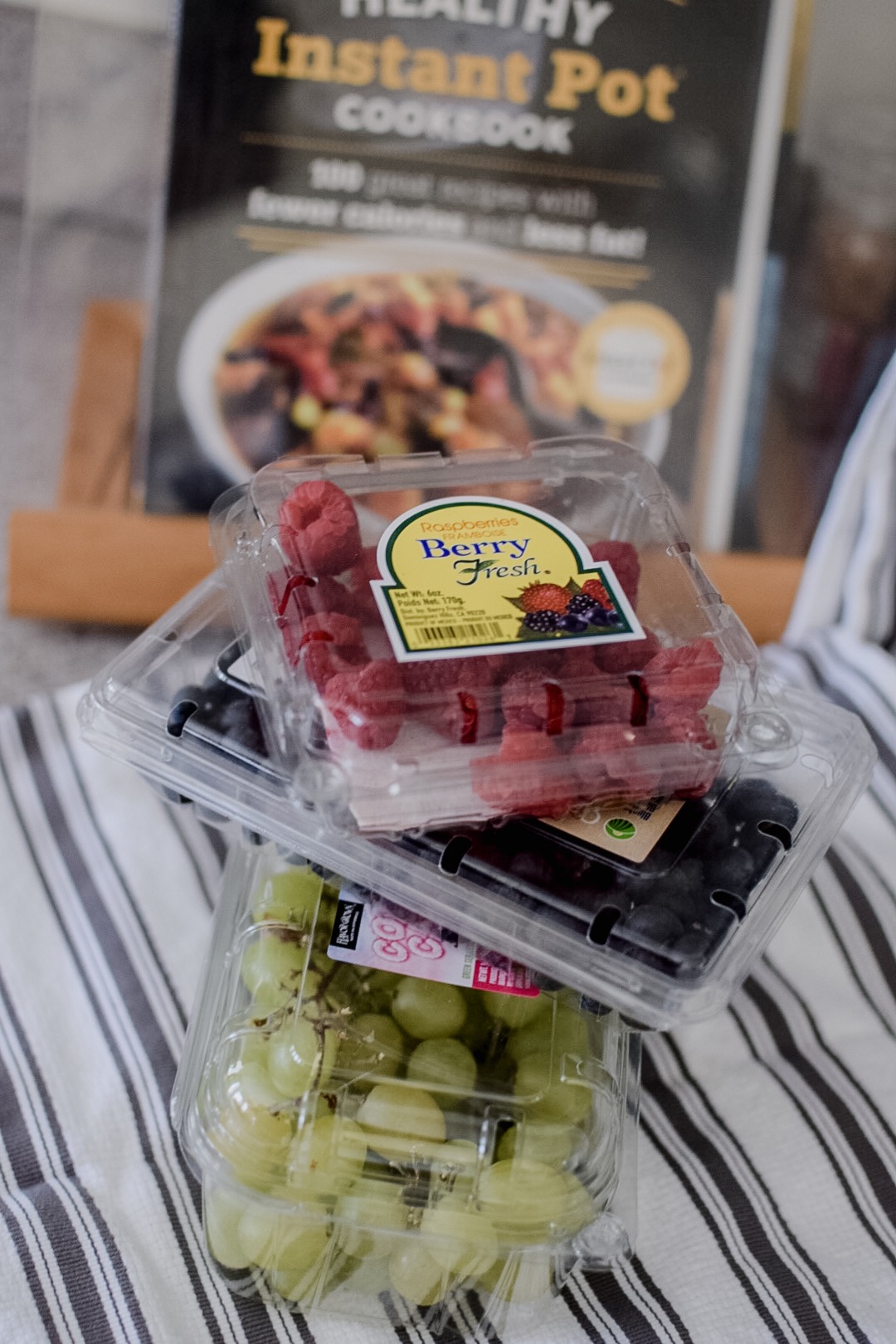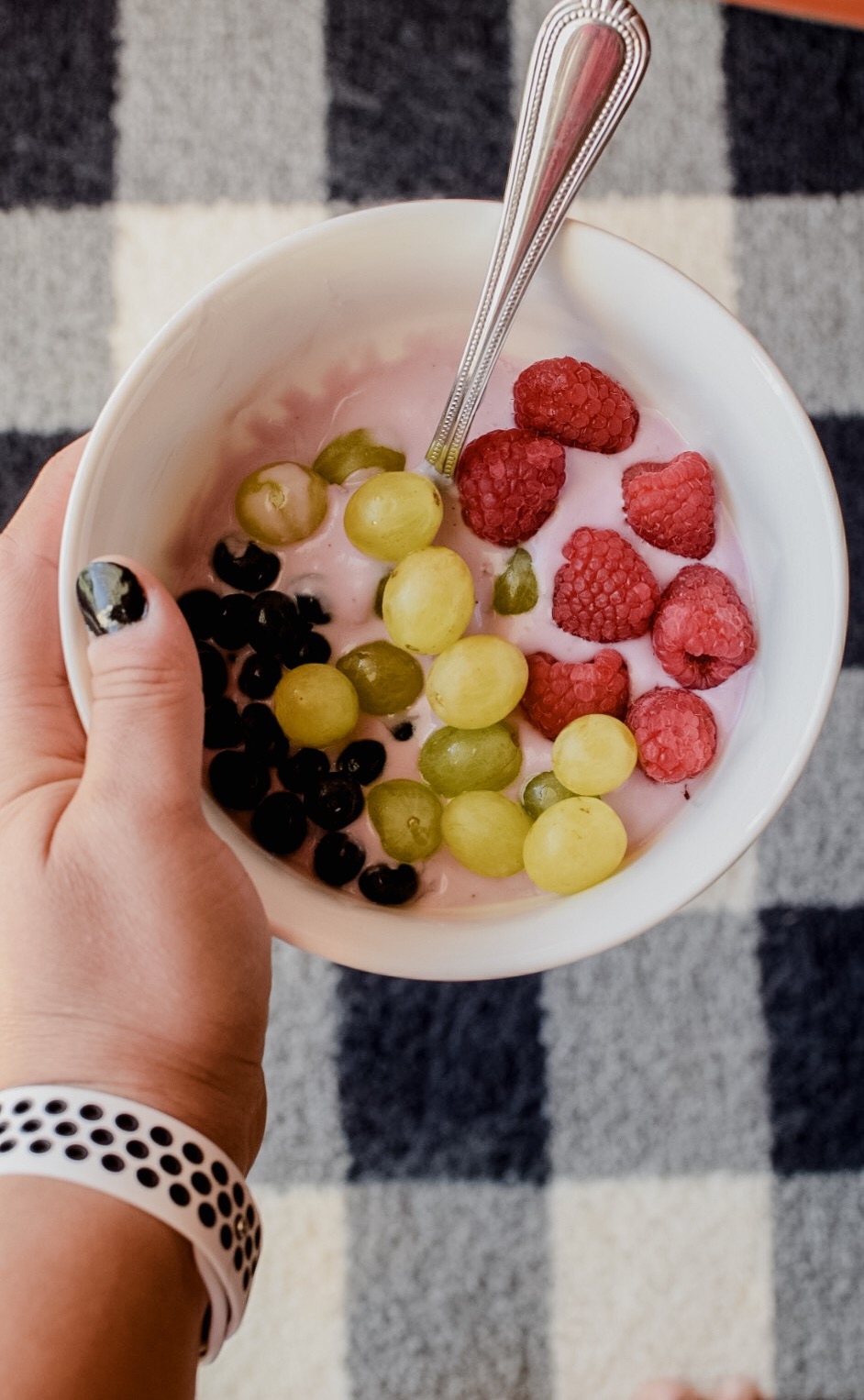 We have either all heard it or said it before, “I want to eat healthy but whole foods are SOOO expensive and I can’t afford fresh produce.” FALSE! There are ways to make healthier choices, especially if you tackle the first tip I have to share: prioritize whole foods over all the other fun things you’d rather spend money on. Swap your Friday Starbucks treat for a container of organic fruit! Ditch the carb, sweet and fast treats, for food that will keep you feeling more full longer- cutting down on the overall grocery needs. I do not have a perfect system for finding the best foods, but I do my best in choosing foods that have 5 ingredients or less and I try to buy organic as much as possible! These are just a few tips I have learned along the way to cut down on the costs of whole/organic/and the “healthy” foods.
We have either all heard it or said it before, “I want to eat healthy but whole foods are SOOO expensive and I can’t afford fresh produce.” FALSE! There are ways to make healthier choices, especially if you tackle the first tip I have to share: prioritize whole foods over all the other fun things you’d rather spend money on. Swap your Friday Starbucks treat for a container of organic fruit! Ditch the carb, sweet and fast treats, for food that will keep you feeling more full longer- cutting down on the overall grocery needs. I do not have a perfect system for finding the best foods, but I do my best in choosing foods that have 5 ingredients or less and I try to buy organic as much as possible! These are just a few tips I have learned along the way to cut down on the costs of whole/organic/and the “healthy” foods.
- Decide to INVEST in your health. I have SOOO been there. I used to buy my groceries at the dollar store and take the food from the displays in my college cafeteria so I could spend all my money on the fun things- fancy drinks (aka beer and cheap wine). It made ZERO sense and thankfully I have come to my wits and made moves to clean up my groceries. If you really want to shop for healthy food on a budget, change your priorities and value the quality of the food. Choose organic farm fresh eggs and meat over the fancy coffee on your morning commute. This can be a hard shift, but if you look at where your food money is going, you will find ways to prioritize spending on quality foods. It isn’t just about the “healthy” labels, but more about the good quality of food- unprocessed, non-GMO, WHOLE foods, that can make you feel much better in the long run.
- Shop the perimeter of the grocery store. If you compare the cost of the organic strawberries to the bag of cookies (both sweet, both tasty) you shouldn’t be surprised that the fruit is going to win. Stick to the perimeter of the grocery store to stay away from the processed foods that are going to be more expensive in the store and more expensive to your health in the long run! When shopping produce, I also try to buy things that are in season. I may really want strawberries every week, but if they aren’t in season, the price will be significantly different. When I am meal planning for the week, I think about the season and what produce items might be on sale (checking the weekly ads are a great place to start).

- Shop ONLY ONCE A WEEK: This one is huge. Meal planning might make you anxious and think- AH I have too much to do to sit down and think through the upcoming weeks meal. But if you keep up with what is in the fridge and freezer and know what food you have, meal planning can become much smoother. I start by checking what I have in the fridge and freezer, I especially check for the frozen meat. I typically pick my proteins and then search recipes with the proteins I have in the freezer. I make note of any produce or pantry items I already have and I adapt recipes to use what is in stock at home. This is a great way to save money and reduce waste. The reason why I meal plan is to go to the grocery store just once a week. If I go multiple times in the week, I will very likely leave with items I don’t need and go way over my food budget for the week. I am currently trying to stick to $100 food budget for the family (including Hudson’s food) each week. BECAUSE I start my meal plan from food I already have in the house, I am able to go to the grocery store once and sticking to the $100 budget is a little easier. I am using the simple budget method that Jordan Page from FunCheaporFree blog shares here in this video. I have set our food budget just a twinge higher than her recommendation, but it is working well on cutting down on food costs!
- USE your freezer! I recently organized our freezer to create space to store meat, fruits, veggies, basically anything I have left over at the end of the week that I can freeze. Did you know you can freeze guacamole? eggs? beef? cheese? sandwiches? oatmeal cups? Essentially everything! How can this save money on healthy foods, you ask?-freezing can help you shop sales and stock up OR freeze foods vs toss. When we have fruit at the end of the week, I stick in the freezer to use in smoothies later on, that way nothing is thrown out. I also suggest shopping the sales and stocking up when they happen. I don’t need to buy 4lbs of grass fed beef for one week, but if there is a sale, I stock up and freeze for when I need it. That way I know I always have healthy and quality foods in my house.
- Buy in bulk: Costco has become one of the leading retailers supplying organic food in this country (say what?!) This is great news, because it is encouraging other stores to offer more organic foods in less expensive options- advocating with our wallets can bring about some big changes! We have a Sam’s membership and we shop there once a month. Most of the time I am purchasing nuts, citrus fruits, some meats, grains (quinoa, brown rice, chia seeds, flax seeds etc). Buying in bulk will help you save money with some quality items because the unit price is less expensive than the small snack size versions in the stores! You don’t have to have a membership to the big retailer to shop in bulk. You can pick up bulk items like nuts, trailmix, seeds, etc. at most major grocery stores. You can save money here because you aren’t paying for packaging and you can decide how much you want.

Have you tried any of these tips? Let me know if you tackle one of these strategies to make your grocery haul healthier this weekend! I am especially interested to hear how you plan for the week.





1 Comment
Your blog is a breath of fresh air in the crowded online space. I appreciate the unique perspective you bring to every topic you cover. Keep up the fantastic work!
October 20, 2024 at 7:26 pm